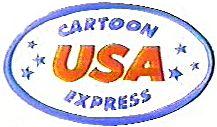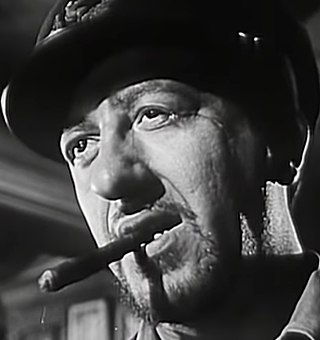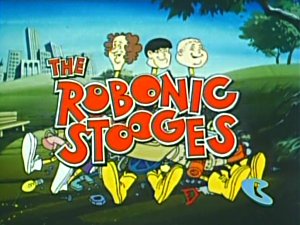Related Research Articles

Scooby-Doo is an American media franchise owned by Warner Bros. Entertainment and created in 1969 by writers Joe Ruby and Ken Spears through their animated series, Scooby-Doo, Where Are You!, for Hanna-Barbera. The series features four teenagers: Fred Jones, Daphne Blake, Velma Dinkley, and Shaggy Rogers, and their talking Great Dane named Scooby-Doo, who solve mysteries involving supposedly supernatural creatures through a series of antics and missteps, while traveling using a brightly colored van called the "Mystery Machine". The franchise has several live-action films and shows.

Benjamin Sherman “Scatman” Crothers was an American actor and musician. He is known for playing Louie the Garbage Man on the TV show Chico and the Man, and Dick Hallorann in Stanley Kubrick's The Shining (1980). He was also a prolific voice-over actor who provided the voices of Meadowlark Lemon in the Harlem Globetrotters animated TV series, Jazz the Autobot in The Transformers and The Transformers: The Movie (1986), the title character in Hong Kong Phooey, and Scat Cat in the animated film The Aristocats (1970).
Mystery Island is a live-action sci-fi adventure serial produced by Hanna-Barbera Productions that originally aired as a segment on The Skatebirds from September 10, 1977, to January 21, 1978, on CBS.

Super Friends is an American animated television series about a team of superheroes which ran from 1973 to 1985 on ABC as part of its Saturday-morning cartoon lineup. It was produced by Hanna-Barbera and was based on the Justice League of America and associated comic book characters published by DC Comics.

Captain Caveman and the Teen Angels is an American animated mystery comedy series created by Joe Ruby and Ken Spears and produced by Hanna-Barbera Productions for ABC. The series aired during the network's Saturday morning schedule from September 10, 1977, to June 21, 1980. All 40 episodes are available on the Boomerang subscription app.

Dynomutt, Dog Wonder is an American animated television series created by Joe Ruby and Ken Spears and produced by Hanna-Barbera Productions that aired on ABC from 1976 to 1977. The show centers on a Batman-esque superhero, the Blue Falcon, and his assistant, Dynomutt, a bumbling, yet effective robotic dog who can produce a seemingly infinite number of mechanical devices from his body. As with many other animated superheroes of the era, no origins for the characters are ever provided.

Clue Club is an American animated television series produced by Hanna-Barbera Productions and broadcast on CBS from September 4 to December 11, 1976.

The New Scooby-Doo Movies is an American animated mystery comedy television series produced by Hanna-Barbera for CBS. It is the second television series in Scooby-Doo franchise, and follows the first incarnation, Scooby-Doo, Where Are You! It premiered on September 9, 1972, and ended on October 27, 1973, running for two seasons on CBS as the only hour-long Scooby-Doo series. Twenty-four episodes were produced, sixteen for the 1972–73 season and eight more for the 1973–74 season.

The USA Cartoon Express was a programming block consisting of animated children's series which aired on the USA Network from September 20, 1982 to September 15, 1996. Cartoon Express was the first structured animation block on cable television, predating Nickelodeon's Nicktoons and Cartoon Network by a decade.

Henry Corden was a Canadian-born American actor, best known for assuming the voice of Fred Flintstone after the death of Alan Reed in 1977. His official debut as Fred's new voice was in a 1965 Hanna-Barbera record, Saving Mr. Flintstone, although he had previously provided the singing voice for Reed in the 1966 theatrical film The Man Called Flintstone and the Hanna-Barbera specials Alice in Wonderland or What's a Nice Kid like You Doing in a Place like This? (1966) and Energy: A National Issue (1977). He took over the role as Fred Flintstone full time starting with the syndicated weekday series Fred Flintstone and Friends for which he provided voice-overs on brief bumper clips shown in-between segments.

Spike and Tyke is a short-lived theatrical animated short subject series, based upon the English bulldog father-and-son team from Metro-Goldwyn-Mayer's Tom and Jerry cartoons. The characters first appeared in the Tom and Jerry series in the 1940s.

Norman Albert Maurer was a comic book artist and writer, and a director and producer of films and television shows.

The Robonic Stooges is a Saturday morning animated series featuring the characters of The Three Stooges in new roles as clumsy crime-fighting cyborg superheroes. It was developed by Norman Maurer and produced by Hanna-Barbera Productions from September 10, 1977, to March 18, 1978, on CBS and contained two segments: The Robonic Stooges and Woofer & Wimper, Dog Detectives.

Wonder Wheels is a Saturday morning animated series produced by Hanna-Barbera Productions that originally aired as a 5-minute segment on The Skatebirds from September 10, 1977, to January 21, 1978, on CBS.

CB Bears is an American animated television series produced by Hanna-Barbera Productions which aired on NBC from September 10 to December 3, 1977.
Chris Cuddington is an Australian animation director who worked at Hanna-Barbera Australia studios in Sydney during the 1970s and 1980s.
James Andrew MacGeorge was an American voice actor, puppeteer, stand-up comedian and writer. He is also credited Jim McGeorge and James MacGeorge.
Scooby's All-Star Laff-A-Lympics is a two-hour Saturday morning animated program block produced by Hanna-Barbera Productions and broadcast on ABC from September 10, 1977, until September 2, 1978.

Laff-A-Lympics is an American animated comedy television series produced by Hanna-Barbera. The series premiered as part of the Saturday-morning cartoon program block Scooby's All-Star Laff-A-Lympics which consists of 24 episodes, on ABC in 1977. The show is a spoof of the Olympics and the ABC primetime series Battle of the Network Stars, which debuted one year earlier. It featured 45 Hanna-Barbera characters organized into teams which competed each week for gold, silver, and bronze medals. In each episode, the Really Rottens would try in each event to cheat only to get caught by Snagglepuss each time. One season of 16 episodes was produced in 1977–78, and eight new episodes combined with reruns for the 1978–79 season as Scooby's All-Stars. Unlike most cartoon series produced by Hanna-Barbera in the 1970s, Laff-A-Lympics did not contain a laugh track. Scooby’s Laff-a-Lympics was originally owned by Taft Broadcasting, Warner Bros. Domestic Television Distribution currently owns the series through its two in-name-only units, Warner Bros. Family Entertainment and Turner Entertainment.
References
- ↑ Woolery, George W. (1983). Children's Television: The First Thirty-Five Years, 1946-1981, Part 1: Animated Cartoon Series. Scarecrow Press. pp. 258–260. ISBN 0-8108-1557-5 . Retrieved 22 March 2020.
- ↑ Erickson, Hal (2005). Television Cartoon Shows: An Illustrated Encyclopedia, 1949 Through 2003 (2nd ed.). McFarland & Co. pp. 748–750. ISBN 978-1476665993.
- ↑ The Skatebirds Series Overview at NYTimes.com, retrieved September 22, 2015.
- ↑ Rovin, Jeff (1991). The Illustrated Encyclopedia of Cartoon Animals. Prentice Hall Press. p. 290. ISBN 0-13-275561-0 . Retrieved 8 April 2020.